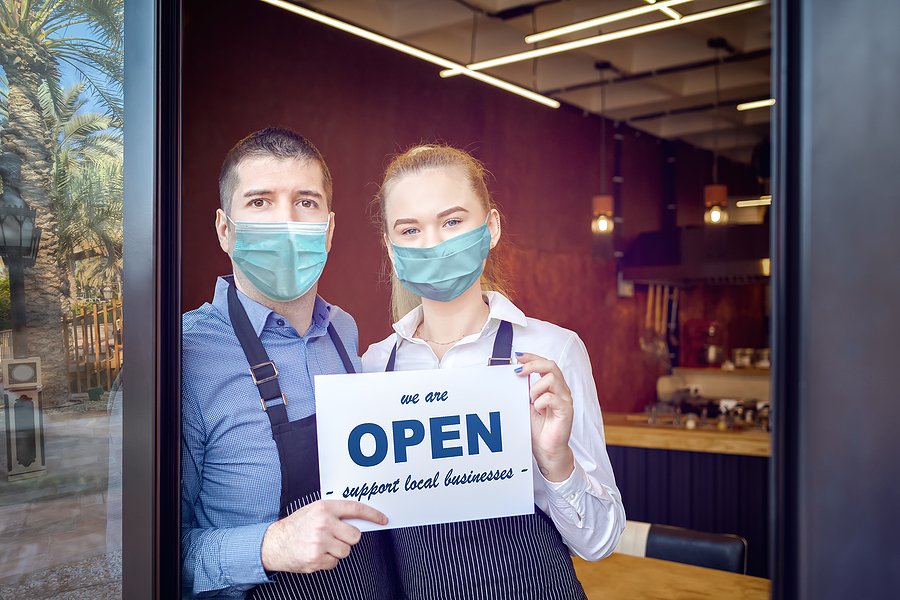Philadelphia restaurants are operating under some of the strictest COVID-19 rules in the nation. This may or may not be good for the fight against the coronavirus, but it’s definitely a boost for restaurants in the suburbs.
As of April 4, indoor dining capacity in Pennsylvania was increased by 75 percent for those eateries complying with all public health regulations. While that may seem like a significant win for the industry, many restaurants in Philadelphia County still operate at 25 percent capacity for indoor dining.
Ben Fileccia, director of operations & strategy for the Pennsylvania Restaurant & Lodging Association, says the restrictions give suburban dining spots a leg up over their competitors in the city.
“The mitigation efforts in Philadelphia are the strictest in any major city in the country right now.” He said he knows of at least 60 restaurants in Center City alone that have been forced to close down due to the pandemic.
“We will also see closures from those places that have been working with an acute loss of revenue for 13 months that find they just do not have the means to hold on in the months ahead,” Fileccia said.
The difference between Philadelphia and the surrounding suburbs, restaurant owners say, is impacting their businesses unfairly.
“There seems to be a disconnect between the city of Philadelphia and the state in regards to what measures need to be taken,” said Saba Tedla, owner of Booker’s Restaurant & Bar in West Philadelphia. “This can be seen in how restrictions differ between county and restaurants in comparison to grocery stores.”
Although restaurants have found ways to pivot during the COVID-19 pandemic, new restrictions and guidelines create new challenges.
“[Restaurants] are all in survival mode, especially considering that all of our surrounding counties have loosened the restrictions,” Fileccia said, “Guests are just driving five miles out of the city to patronize places that can safely accommodate them.”
Fileccia highlighted the unintended consequences of the city’s strict mitigation efforts, which includes Philadelphia restaurants losing customers.
“Instead of allowing restaurants and event operators to take care of their guests in a safe way, it’s forcing people to go into unregulated areas to gather where there’s no enforcement of mask-wearing, social distancing, or elevated sanitation,” Fileccia said.
But Greg Di Stefano, owner of The Victor Cafe in South Philadelphia, expressed his gratitude for the help he has received from the city and said he hopes for future assistance.
“Between unemployment, payroll protection, amongst other resources, I believe our elected officials have all contributed in helping keep my restaurant open,” Di Stefano said.
“As long as these same programs can be implemented in the case of another pandemic like this one and get into the hands of restaurant owners like myself promptly, we can get through this,” Di Stefano added.
And perhaps the best news came Friday, when Philadelphia lifted its 50-person cap on restaurants with outdoor dining, provided they submit an application to the Department of Licenses and Inspections. And restaurants with bars will be able to seat up to four people from the same household so long as they’re at least six feet from other patrons at the bar.

